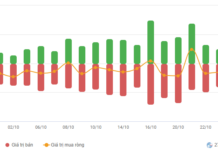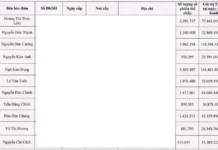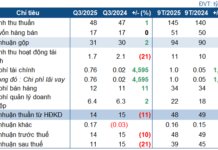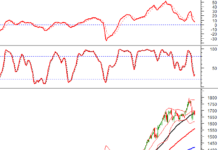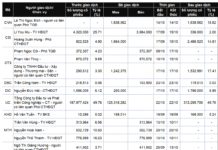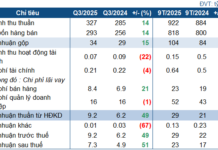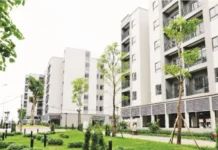The draft Decree, comprising 6 chapters and 47 articles, outlines detailed regulations on the development, management, exploitation, and updating of housing and real estate market data. The Ministry of Construction emphasizes that real estate transactions—including buying, selling, leasing, hire-purchase, mortgaging, capital contribution, conversion, and inheritance—must ensure transparency and be fully updated into the national database system.
“The State encourages real estate transactions through digital platforms, centers, or electronic methods,” the Ministry of Construction stated in the draft.

The Ministry of Construction promotes digital real estate transactions.
The Ministry affirms its commitment to modernizing management, reducing uncontrolled spontaneous transactions prevalent in the current market.
Currently, most real estate transactions in Vietnam occur through privately managed platforms, primarily focusing on primary markets between developers and first-time buyers. Secondary transactions between individuals or through small brokers are less verified, leading to legal risks, fraud, and inaccurate price declarations.
To address this, the Prime Minister has directed the Ministry of Construction to collaborate with relevant ministries in establishing a “State Real Estate and Land Use Rights Transaction Center.” This center will operate transparently with oversight and centralized data storage.
The center will serve as a hub for buying, selling, leasing, mortgaging, and inheriting real estate, integrating with land, notary, and tax databases to ensure interoperability, prevent budget losses, and curb tax evasion through underreporting.
Notably, earlier this year, the Ministry of Construction was tasked with researching an online real estate transaction model akin to stock trading. This model allows citizens to complete registration, notarization, tax payment, and ownership transfer digitally—a key step in digitizing housing and real estate processes.
According to the plan, the online real estate transaction center will pilot from 2026 to 2027 before nationwide implementation upon the Decree’s enactment. All real estate transactions, whether between individuals, organizations, or businesses, will be encouraged—and potentially mandated—to use this system or electronic channels.
This model is expected to enhance transparency, reduce disputes, combat money laundering and speculation, and provide authorities with comprehensive market data for monitoring and policy-making.
Experts predict that effective implementation will revolutionize Vietnam’s real estate market management, fostering transparency, accurate policy-making, and increased investor and public trust in the housing market.
Tumys Homes: Leading Real Estate Developer Crafting Prosperous Living
“Success isn’t measured by how high you climb, but by the positive impact you create in the world.” This guiding principle fuels the journey of Tumys Homes—a brand dedicated to crafting iconic structures, fostering prosperity, and spreading enduring value in every community it touches.
Is the Real Estate Price Control and Restraint Policy Sufficient?
The objective of this article is to analyze international experiences in designing and implementing macroprudential policies for the housing market, extracting viable and contextually relevant policy lessons applicable to Vietnam. By examining these insights, the aim is to enhance financial stability and ensure that real estate price fluctuations align with the fundamental economic factors driving the Vietnamese economy.
Vietnamese Real Estate Emerges as the New Hotspot for Overseas Vietnamese
U.S. home prices have plateaued, and investment returns are dwindling, while Vietnam’s real estate market is gaining traction with its investor-friendly regulations and high profit potential. A growing number of overseas Vietnamese are returning home, seeking opportunities to own property and make long-term investments.
Soaring Construction Material Costs Make Home Price Reductions Unlikely
Experts warn that the ongoing surge in construction material costs, if prolonged, will significantly hinder any potential decrease in housing prices.





